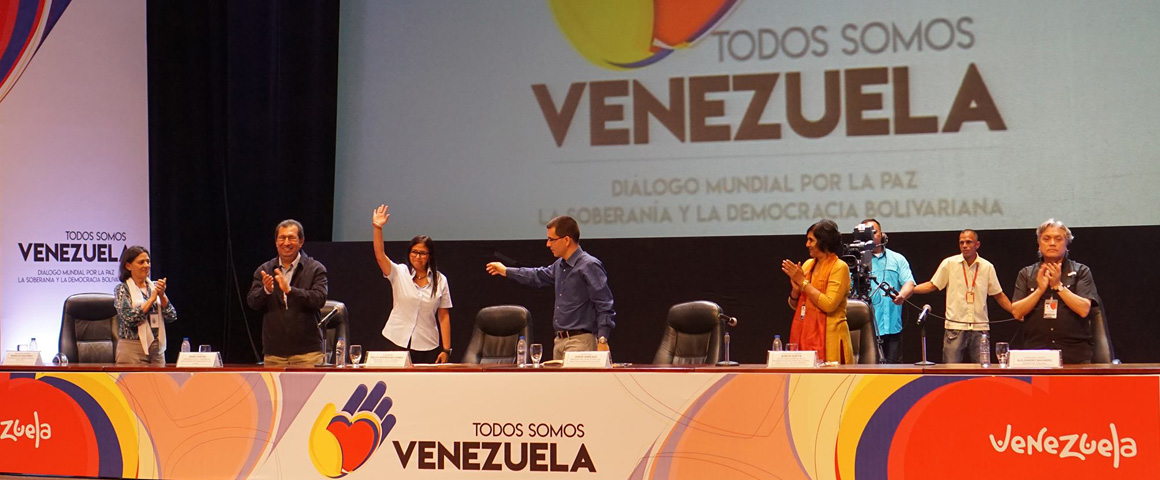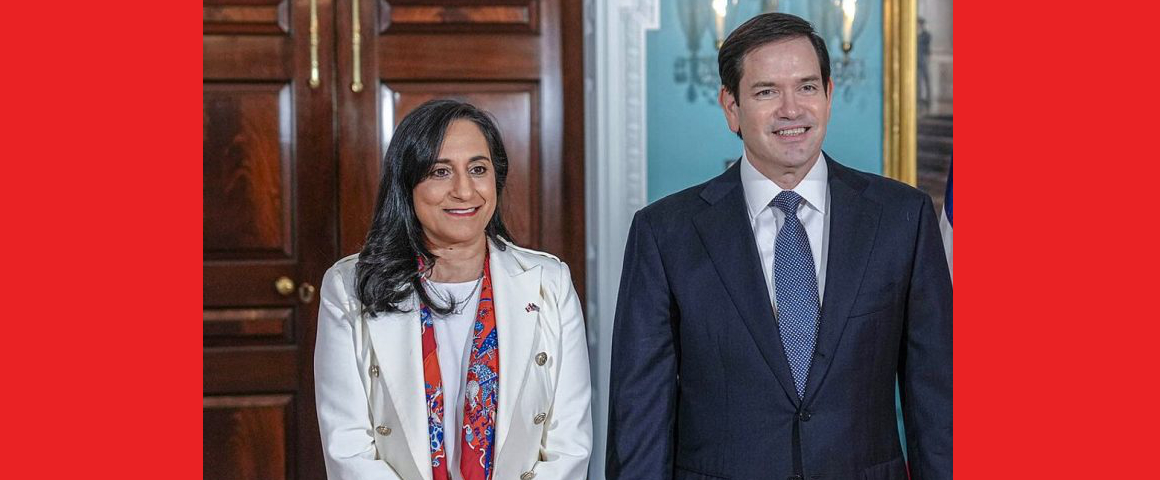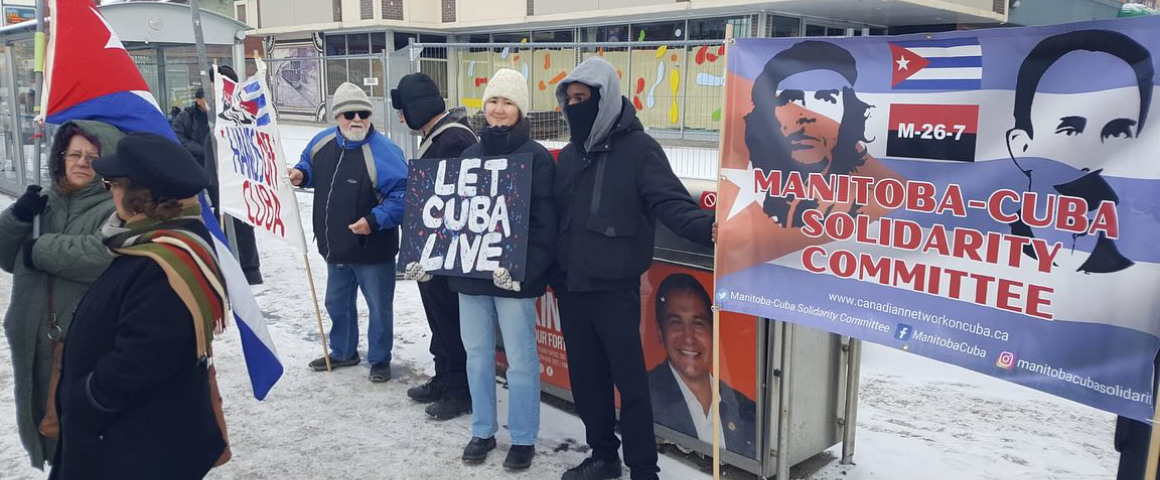As the United States continues to threaten invasion and to impose sanctions on Venezuela, representatives of 60 countries assembled in Caracas from Sept. 16 to19. United by the slogan “Todos Somos Venezuela/ We Are All Venezuela”, the meetings and events were described as “dialogues for peace, sovereignty and Bolivarian democracy.”
Seven delegates from Canada, including solidarity groups Ottawa and Vancouver, activists from Montreal, and the Communist Party of Canada were in attendance.
The conference opened with a massive gathering in a main theatre in Caracas. Two hundred international delegates were in attendance as well as Chavista activists and members of the newly elected National Constituent Assembly.
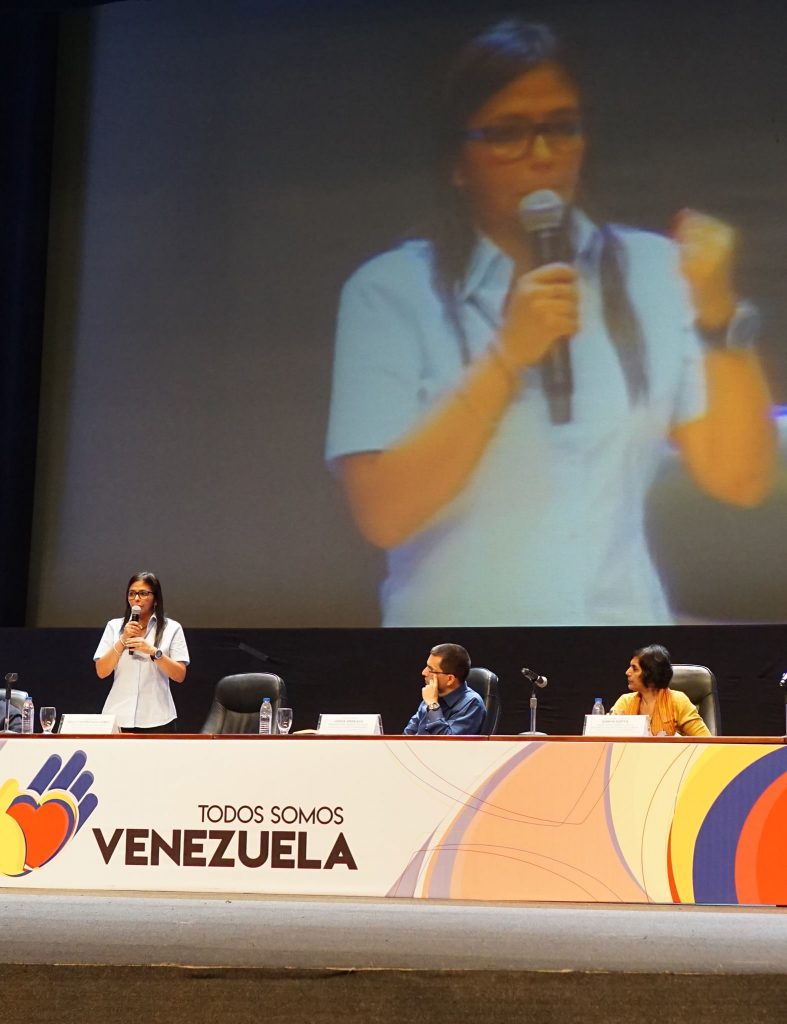
The presidium included Delcy Rodriguez, President of the newly elected Constituent Assembly, Jorge Arreaza, the Foreign Minister of Venezuela, and World Peace Council President, Socorro Gomes. Delcy Rodriguez, who is now the target of illegal and shameful sanctions from the Liberal government in Ottawa, delivered a revolutionary keynote. She noted that the capitalist system is responsible for massive crimes around the world pointing to the oppression of the Palestinian and Saharawi people, and the hypocrisy of the imperialist campaign against Venezuela.
Rodriguez quoted Fidel’s definition of a revolution and proclaimed that “in Venezuela we have a revolution.” Venezuela is an “imperial target” and a “victim of an unconventional war,” she said, calling this part of a pattern including Libya and Syria.
She pointed out the danger of Venezuela is a “threat to the capitalist model”, because of its example, and said that Washington’s worry is that people around the world will start “speaking and acting like the Bolivarian Revolution.”
The conference continued with international delegates splitting into workshops to discuss and amend a draft proclamation to be issued in the name of the solidarity gathering. What became the “Proclamation of Caracas” forcefully condemned efforts by violent sections of the opposition at destabilization, the economic war and U.S. sanctions, the disinformation campaign surrounding ‘dictatorship’ in Venezuela (pointing to support for the Constituent Assembly as well as state governor elections this year, and municipal and presidential elections next year). The proclamation clearly denounced the threats of invasion coming from Donald Trump.
The document demands that the decision of the region to be a “zone of peace” be upheld. It is an urgent call to democratic forces around the world to build solidarity with Venezuela: “The defense of the Bolivarian Revolution is an inescapable duty of the peoples Latin America, the Caribbean and the world; with the understanding that in Venezuela is defending the right to sovereignty, independence, self determination and the integration of our peoples.”
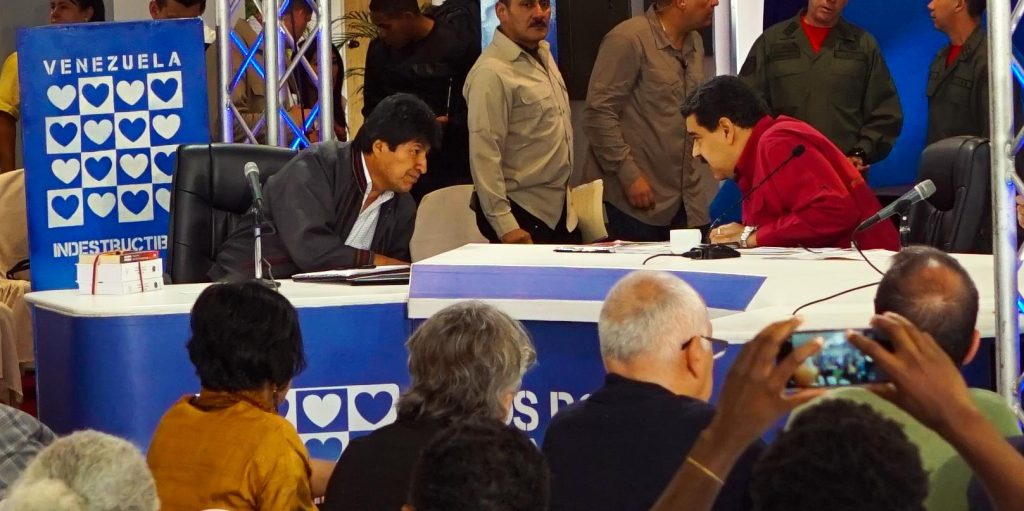
On the Sunday, delegates took a two-mile gondola ride to a national park high in the mountains overlooking Caracas. The venue was the setting for President Maduro’s weekly television program, that week featuring the President of Bolivia, Evo Morales.
The program covered a lot of ground. Morales reminisced about his first trip to Cuba as a young trade unionist for a solidarity conference (and not having enough money to fly back to Bolivia), the first time he met Fidel and debates he used to have with Fidel and Hugo Chavez.
President Maduro told the audience that Trump’s threat of military action against Venezuela “is a threat to the whole world.” He talked about the need to build internationalist solidarity and sharply criticized the “cowardly left” who have repeated the corporate media’s lies about Venezuela. Maduro also acknowledged the upcoming centenary of the October Revolution, and paid homage to VI Lenin, the leader of the first socialist revolution.
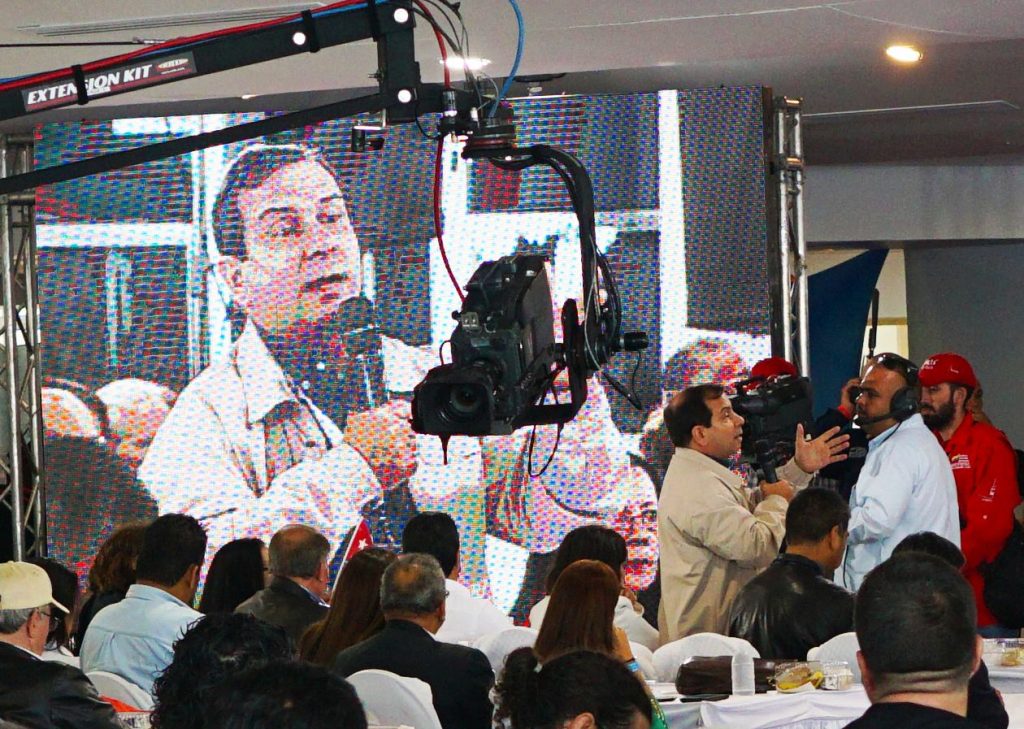
In closing remarks, Morales stated that “if Maduro is forced to take on the Empire,” that he and Bolivia will support him. Other notable speakers spoke from the floor, including Fernando Gonzalez, one of the “Cuban Five,” who spent over 15 years in a U.S. prison for trying to stop U.S. backed acts of terrorism in Cuba. Guy-Patrice Lumumba, son of murdered Congolese President Patrice Lumumba, also spoke. Guy-Patrice pointed out that the Belgian and U.S. overthrow of the anti-colonial government in Congo is one example of the crimes of imperialism that is now targeting Venezuela.
On Monday, delegates heard from General Vladimir Padrino who outlined Venezuela’s “Civic-Military Union”, which has created an “anti-imperialist and anti-oligarchic” armed forces ready to resist coup attempts and invasion. The project to transform the military and infuse it with “humanism” and a duty to serve the people of Venezuela was brought about after the 2002 coup attempt against Hugo Chavez.
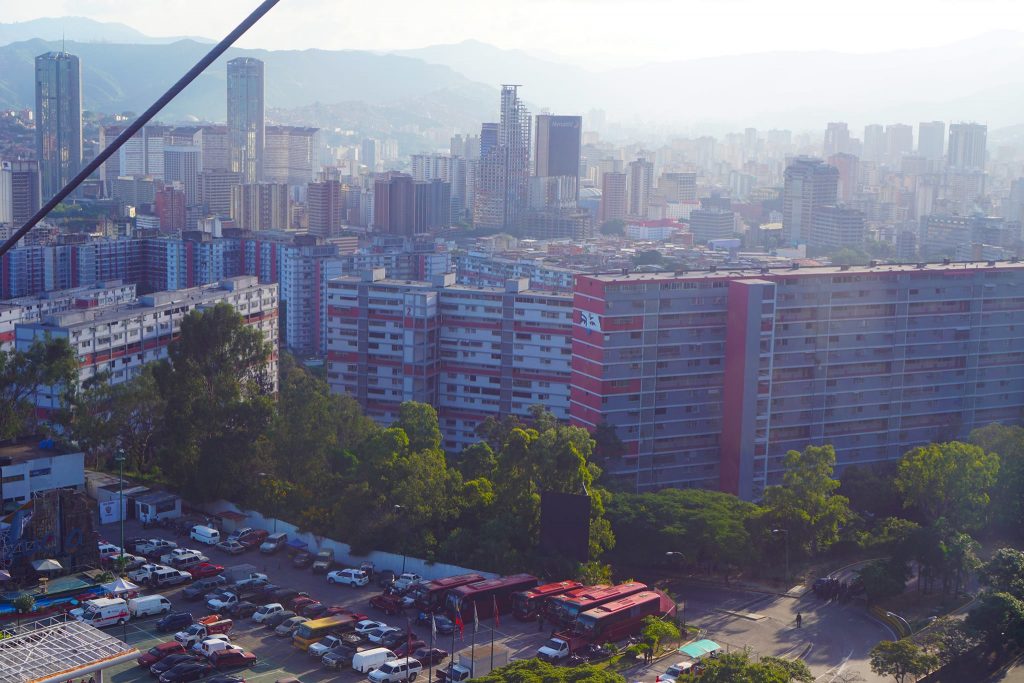
Other delegates, including several Canadians, toured Vargas province, adjacent to Caracas, where they met with the Minister of Social Movements and Communes, as well as local activists from communes. We saw first hand some of the massive social housing projects, which have housed more than 1.7 million low-income Venezuelans since the “Great Housing Mission” began in 2011.
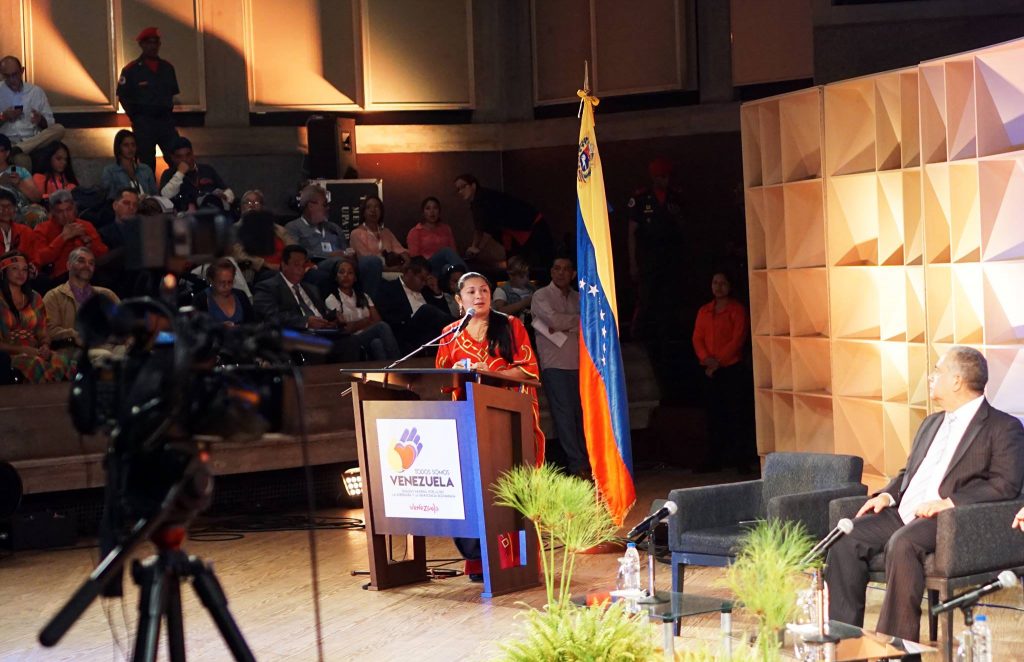
On Tuesday, delegates gathered in the theatre again to hear closing remarks from Delcy Rodriguez. We also heard from Aloha Nunez, one of the members elected by Indigenous communities to the Constituent Assembly. Nunez is from the Wayu nation. Before she was elected to the Constituent Assembly this summer, she was the Minister of Popular Power of Indigenous Peoples of Venezuela.
Nunez cited government policy in 1961 where Indigenous peoples were “not considered people, but animals to be assimilated.” Hugo Chavez and the Bolivarian Revolution changed things. Nunez said: “The Oligarchy fears the revolution, because it has given rights for everyone to participate. Venezuela means hope for the world. Hope for oppressed minorities that exist everywhere around the world.”
The theme of building of a participatory, distinctly “Bolivarian democracy”, ran through many of the closing remarks, mostly in reference to the Constituent Assembly and the Bolivarian constitution. As Argentine progressive writer Paula Klachko put it when speaking from the floor: “Those that capitalism discarded, here [in Venezuela] they have become protagonists.”
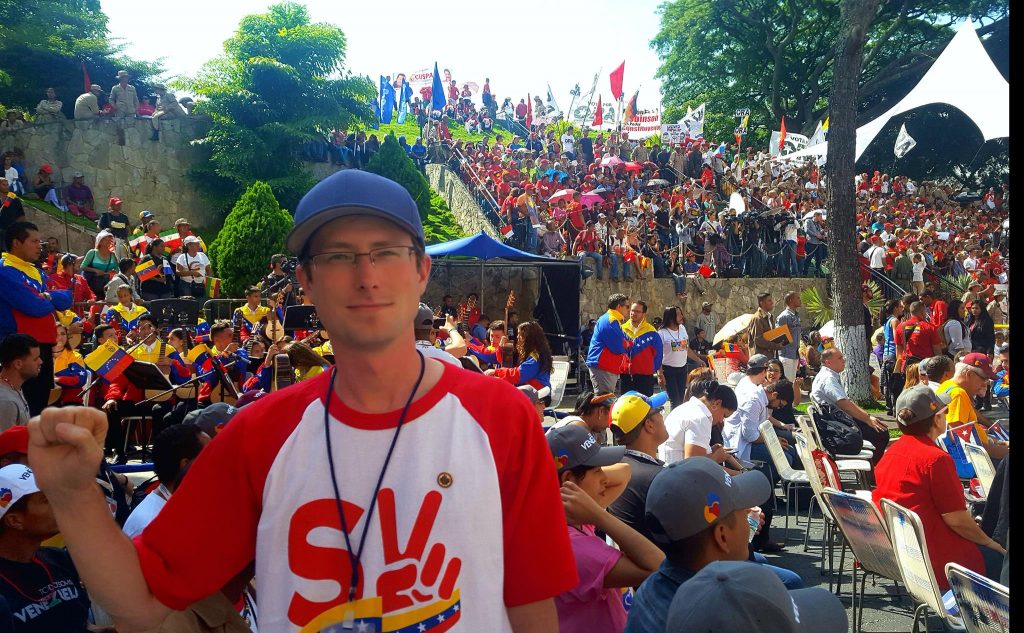
Venezuelans assembled at noon on Tuesday, for a massive “Anti-Imperialist March” through Caracas. International delegates met up with many of the marchers for a large rally outside the Presidential Palace of Miraflores, where Maduro gave a defiant speech reacting to Trump’s warmongering speech to the UN on the same day.
Maduro denounced the “aggression of the new Hitler, Donald Trump, the racial supremacist… Despite the words of hate and war from Donald Trump, the socialist revolution will continue.”
At the U.N. Trump had denounced Iran, Syria, Cuba and Hezbollah. He attacked Maduro’s “disastrous rule” and called for intervention in Venezuela. Trump threatened to “totally destroy North Korea,” a country of 25 million inhabitants.
In returning to Canada, delegates learned that the Canadian government had decided to impose illegal sanctions on forty officials from the Venezuelan government. This escalation of Canada’s interventionist policy in regards to Venezuela is something that we should take very seriously, because of Canada’s recent history in helping to overthrow the democratically elected governments of Haiti and Honduras.
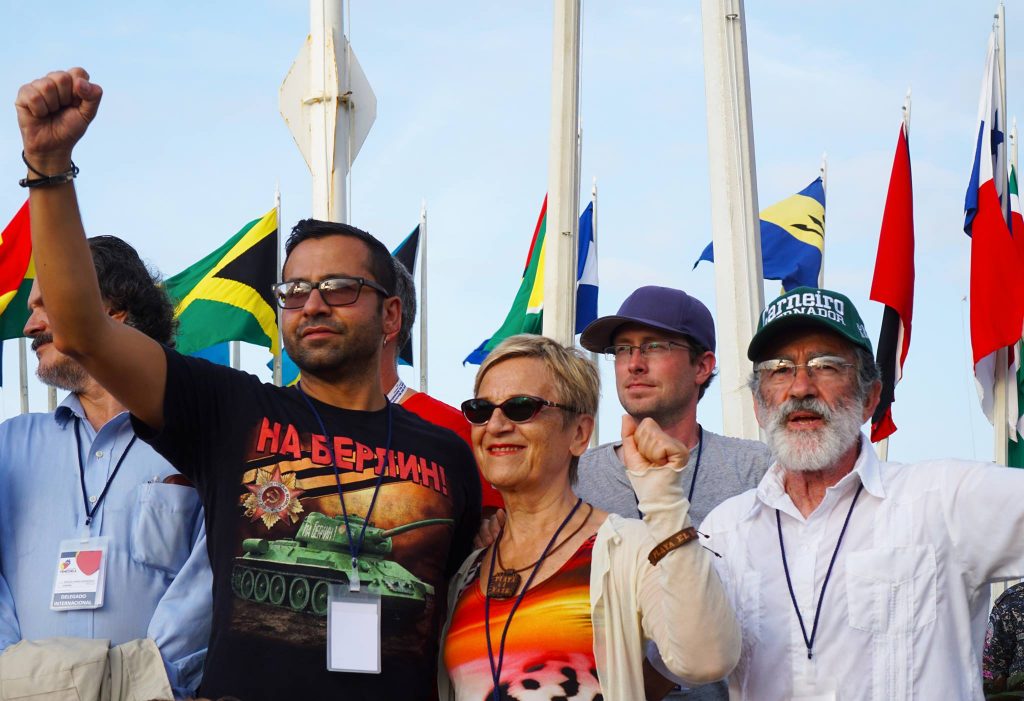
Throughout our trip, the delegates from Canada were warmly received by Venezuelans. Our message of solidarity and promise to fight for Venezuela back home earned heartfelt applause in meetings. The conference was successful in proving that Venezuela is not alone, but there is still a lot of work to do to counteract the lies of government and media in Canada. Returning delegates and solidarity organizations in Canada are determined to have the slogan “we are all Venezuela” resonate from coast-to-coast.
More photos from the trip are available on the Communist Party of Canada’s Facebook page.

